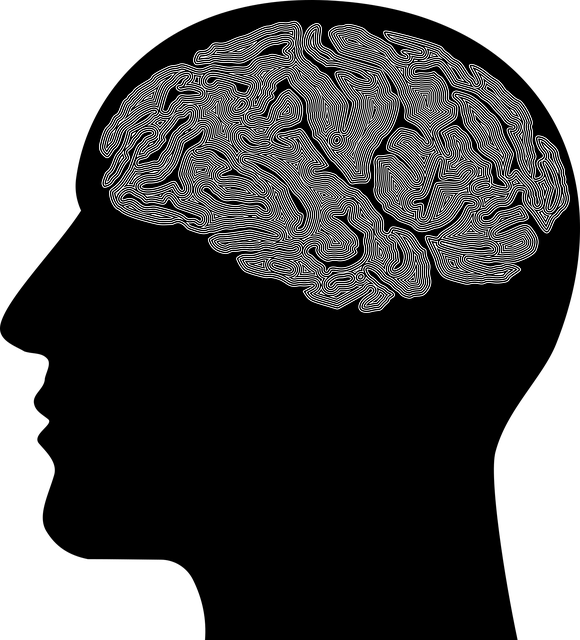Longmont Major Life Transitions Therapy offers advanced Crisis Intervention Team (CIT) training, empowering healthcare providers to manage mental health crises effectively. Beyond basic skills, these programs cover cultural sensitivity, mindfulness, emotional regulation, and mental wellness journaling for personal growth. By integrating reflective practices and Mind Over Matter principles, participants gain resilience to support others through complex life transitions. Strategic implementation includes assessing needs, regular refreshers, diverse learning, cultural competency, mental health awareness, and conflict resolution, resulting in improved patient outcomes and safer environments.
Crisis intervention team (CIT) training programs play a pivotal role in equipping professionals with essential skills to handle mental health crises. This article explores these training programs, focusing on their understanding and key components, specifically tailored for Longmont Major Life Transitions Therapy. We delve into the benefits of CIT training within mental health support settings and provide implementation strategies to enhance crisis management capabilities. By examining these aspects, we aim to highlight the transformative potential of such programs in fostering effective support systems.
- Understanding Crisis Intervention Team (CIT) Training Programs
- Key Components of Effective CIT Training for Major Life Transitions Therapy in Longmont
- Benefits and Implementation Strategies for CIT Training in Mental Health Support Settings
Understanding Crisis Intervention Team (CIT) Training Programs

Understanding Crisis Intervention Team (CIT) Training Programs is a crucial step for any community aiming to enhance its response to mental health crises. These specialized programs equip individuals with the skills needed to support those facing significant life challenges, such as Major Life Transitions, often characterized by intense emotions and decision-making pressures. The goal of CIT training is to foster effective communication, de-escalation techniques, and a range of interventions tailored to diverse populations.
In today’s world, where mental wellness is a growing priority, Longmont Major Life Transitions Therapy offers valuable guidance. Beyond the core curriculum, advanced modules explore essential topics like Cultural Sensitivity in Mental Healthcare Practice, enriching the overall training experience. Additionally, integrating Mental Wellness Journaling Exercise into the training regimen promotes self-awareness and reflective practice among participants. These comprehensive programs empower citizens to become crisis intervention experts, ensuring better support for individuals navigating life’s most challenging moments.
Key Components of Effective CIT Training for Major Life Transitions Therapy in Longmont

In Longmont, Major Life Transitions Therapy plays a crucial role in empowering individuals to navigate challenging situations with resilience. Effective crisis intervention team (CIT) training programs for this therapy focus on several key components. Firstly, they emphasize the development of inner strength through evidence-based techniques that foster mental wellness. This includes mindfulness practices and emotional regulation strategies, helping participants cultivate a sense of stability and coping mechanisms during crises.
Secondly, these CIT training programs incorporate Mental Wellness Journaling Exercises Guidance, enabling individuals to track their thoughts, emotions, and progress over time. By documenting their experiences, participants gain valuable insights into their responses to life transitions, facilitating personal growth and enhanced mental clarity. Additionally, the integration of Mind Over Matter Principles equips individuals with cognitive reframing skills, allowing them to challenge negative thought patterns and promote a positive mindset even in stressful situations.
Benefits and Implementation Strategies for CIT Training in Mental Health Support Settings

Crisis Intervention Team (CIT) training programs offer invaluable benefits for mental health support settings in Longmont Major Life Transitions Therapy. By equipping healthcare providers with specialized skills, CIT training enhances their ability to effectively manage and de-escalate crises, thereby improving patient outcomes and safety. Trained teams can provide immediate, appropriate interventions, reducing the reliance on emergency services and promoting more stable environments for individuals experiencing severe mental health episodes.
Implementing CIT training involves a strategic approach. Firstly, organizations should assess their current resources and needs, identifying areas where additional support is required. Providing ongoing training and regular refresher courses ensures that skills remain sharp and up-to-date. Incorporating diverse learning methods, such as role-playing scenarios, workshops, and online modules, can enhance engagement and knowledge retention. Encouraging cultural competency training among healthcare providers is also crucial, fostering an inclusive environment that respects and understands the unique needs of every patient. Additionally, integrating mental health awareness campaigns and conflict resolution techniques into CIT programs equips teams to navigate complex situations with empathy and professionalism.
Crisis Intervention Team (CIT) training programs play a pivotal role in equipping individuals with the skills to manage and support those facing mental health crises. As highlighted, these programs, particularly those focused on Longmont Major Life Transitions Therapy, offer valuable tools for navigating challenging situations effectively. By integrating key components such as empathy, de-escalation techniques, and cultural competency, CIT training empowers participants to provide compassionate care during critical moments. The benefits extend beyond immediate crisis resolution, fostering a more supportive and resilient community in mental health support settings. With proper implementation strategies, these programs can revolutionize how we respond to individuals in crisis, ultimately enhancing well-being and recovery outcomes.














